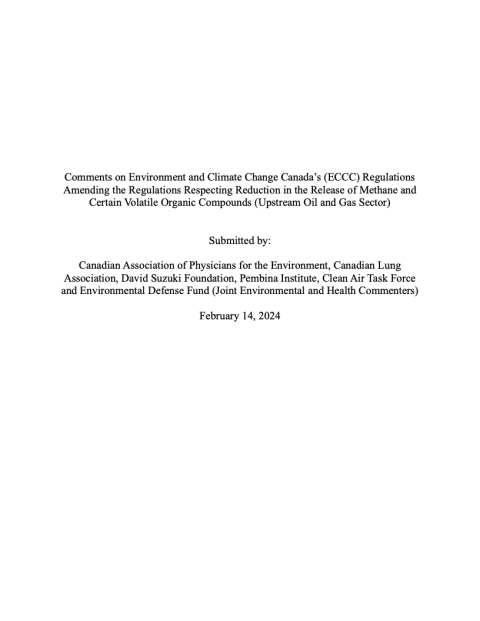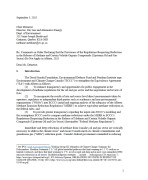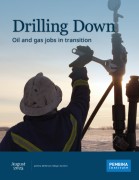Canadian Association of Physicians for the Environment, Canadian Lung Association, David Suzuki Foundation, Pembina Institute, Clean Air Task Force and Environmental Defense Fund (Joint Environmental and Health Commenters) submit the following comments on Environment and Climate Change Canada’s (ECCC) Regulations Amending the Regulations Respecting Reduction in the Release of Methane and Certain Volatile Organic Compounds (Upstream Oil and Gas Sector). We greatly appreciate the opportunity to comment on ECCC’s important proposal. Immediate and deep reductions of methane are critically necessary to address the climate crisis, ensure Canada meets its climate commitments and greenhouse gas (GHG) reduction goals, and secure important co-reductions of other harmful pollutants emitted during flaring and venting and from leaks.
We appreciate Canada’s GHG commitments and are largely encouraged by ECCC’s proposal. We strongly support the following elements of the proposal, which are in line with international best practices for reducing methane:
- The fugitive emission detection and repair program that is comprised of a suite of frequent instrument-based inspections;
- The prohibition on venting;
- The hydrocarbon gas destruction equipment specifications.
We urge ECCC to strengthen the proposal in the following key ways:
- Move up the coming into force deadlines to reflect established precedent for similar measures elsewhere, the urgency of the climate crisis and ensure Canada meets its 2030 GHG reduction target;
- Require monthly screening inspections, unless the operator submits an engineering certification demonstrating that it is unsafe to conduct any of the inspections;
- Narrow the exceptions for venting and in some instances add time limits to allowable venting;
- Prohibit the routine flaring of solution and casinghead gas from oil wells and establish time limits for allowable temporary flaring of solution gas and casinghead gas;
- Increase the protectiveness of the engineering demonstration needed to permit flaring by requiring an annual demonstration, require certification by an independent third- party engineer, and limit the exemption to demonstrations of technical, rather than economic, infeasibility for requests to flare solution or casinghead gas routinely;
- Remove the opt-out alternative compliance pathway; and
- Enhance the protectiveness of the continuous monitoring provision and allow operators to utilize this technology as part of fugitive emission detection and repair requirements.
We also urge ECCC to promptly propose provisions requiring operators directly measure, rather than estimate, methane emissions from upstream oil and gas facilities, and report such measurements to ECCC as part of a national, publicly available, detailed, and granular methane inventory. Improvements to the proposal are necessary to ensure Canada meets its GHG reduction target and keeps pace with leading international regulatory frameworks, as demonstrated by recent United States Environmental Protection Agency rules and proposed EU Parliament and Council rules.






